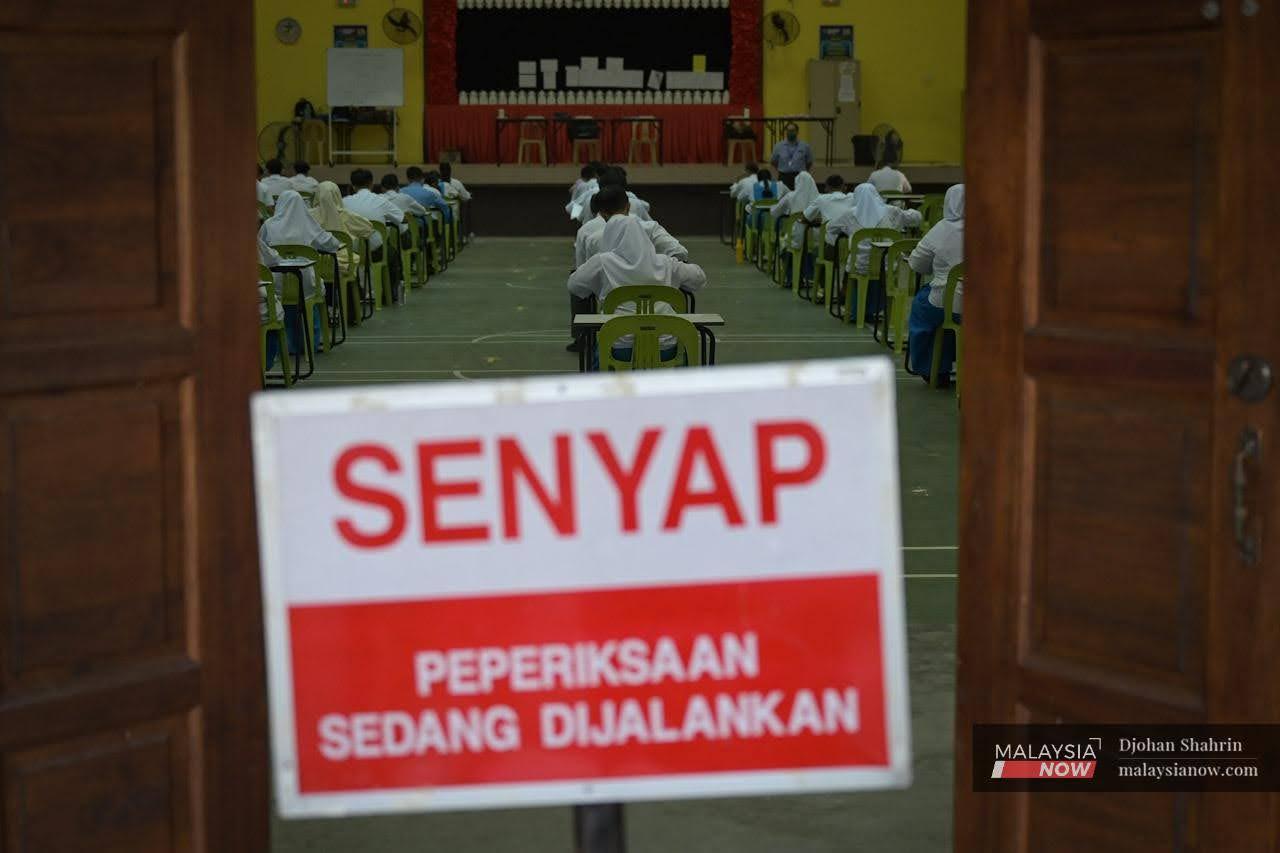Why now, educationists ask on govt move to scrap PT3
They say many issues should be addressed before such a move is made, and that the unexpected announcement may have wasted the time and money spent on preparing for the exam this year.
Just In
Educationists have voiced concern over the government’s move to abolish the Form 3 Assessment test (PT3) and replace it with classroom assessments (PBD), questioning among others the timing of the decision and Putrajaya’s readiness for such a shift.
Anuar Ahmad of Universiti Kebangsaan Malaysia (UKM) said several issues should be addressed before any move to PBD, including the large number of students in any given class and the extra work it would mean for teachers already struggling with lessons-related tasks.
“If we make a comparison with developed countries, abolishing PT3 can be considered,” he said. “But that is not the issue. The issue is the timing. Is now the right time to do away with PT3?
“When the education ministry scrapped PT3 in such a hurried manner before making any detailed preparations for the implementation of PBD, this means that it was an inappropriate move.”
PT3 was the second major exam to be scrapped following the decision to abolish the Standard Six Ujian Penilaian Sekolah Rendah or UPSR examination in April last year.
It was introduced in 2014 as a replacement for the Penilaian Menengah Rendah or PMR exam.
Anuar suggested that PT3 be abolished in 2024 in order to make way for PBD.
“Many things need to be prepared ahead of time to ensure the effective implementation of PBD, and that it doesn’t just burden the teachers and students,” he said.
For example, he said, teachers should be given training and assistant teachers appointed for classes of more than 40 students.
“And take another look at the syllabus, especially at the primary school level, so that learning activities can be made more fun,” he added.
Student activity modules that support the implementation of PBD should also be developed, he said, and parents given a rundown of the new assessment method.
Fellow educationist Azlin Norhaini Mansor said the main objective of PBD was to monitor the progress of individual students, not to compare one student with another.
Azlin, from UKM’s Centre for the Study of Leadership and Education Policy, said this was both relevant and in line with the goals of the National Education Philosophy.
Voicing her support for the implementation of PBD, she nevertheless cautioned that several matters should be given attention.
For one, she said, there must be transparency in terms of PBD reports. She also said that students’ ability to answer examination questions should be monitored.
“There are some who indirectly want to ensure that students achieve the minimum level of understanding for each subject in any way, just to maintain the school’s level of academic performance and to avoid any action in the event of a decline in academic quality,” she said.
She also spoke of isolated cases in which teachers said that they were not allowed to give grades below the minimum level, even though they felt that the students had not reached anything higher than this.
On the ability to answer test questions, Azlin said the abolishment of both the UPSR and PT3 examinations meant that students no longer received formal lessons on how to answer general exam questions.
“How ready will they be to sit for SPM?” she said, referring to the Form 5 exam taken before students graduate from secondary school.
“Will they be able to answer any questions in any exam?”
Azlin said such tests instil a sense of competition among students and push schools to do their best.
“This motivates students to concentrate on their studies so that they can do well in their exams,” she said. “How will such competitiveness be instilled for SPM?”
Anuar meanwhile sympathised with the 400,000 students who had been working over the past two years to prepare for PT3, which was scrapped about three months before the exam was meant to take place.
“Imagine how much parents spent on tuition fees and other matters to prepare their children for PT3,” he said.
“This might seem like a small matter to us, but just think how they might feel.”
For him, the priority should be to settle the technical and operational details related to PBD.
“Don’t rush into doing away with PT3,” he added. “Otherwise, everything will be thrown into disarray.”
Subscribe to our newsletter
To be updated with all the latest news and analyses daily.
